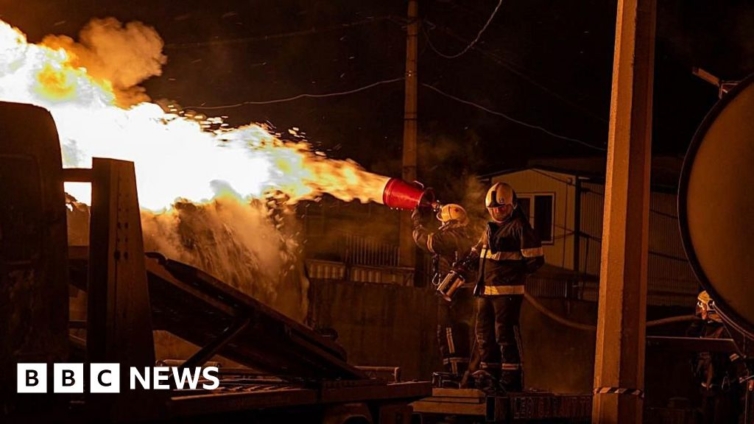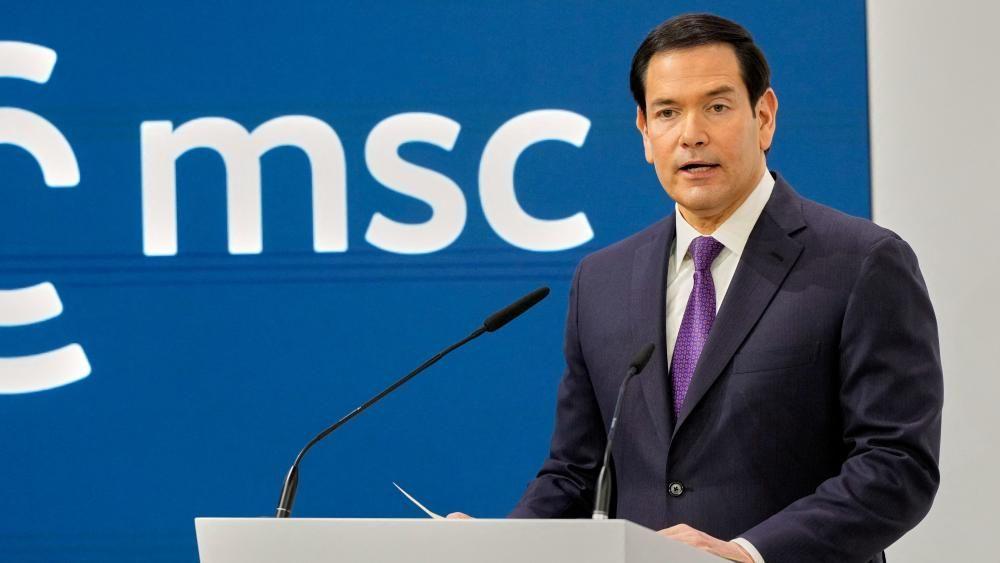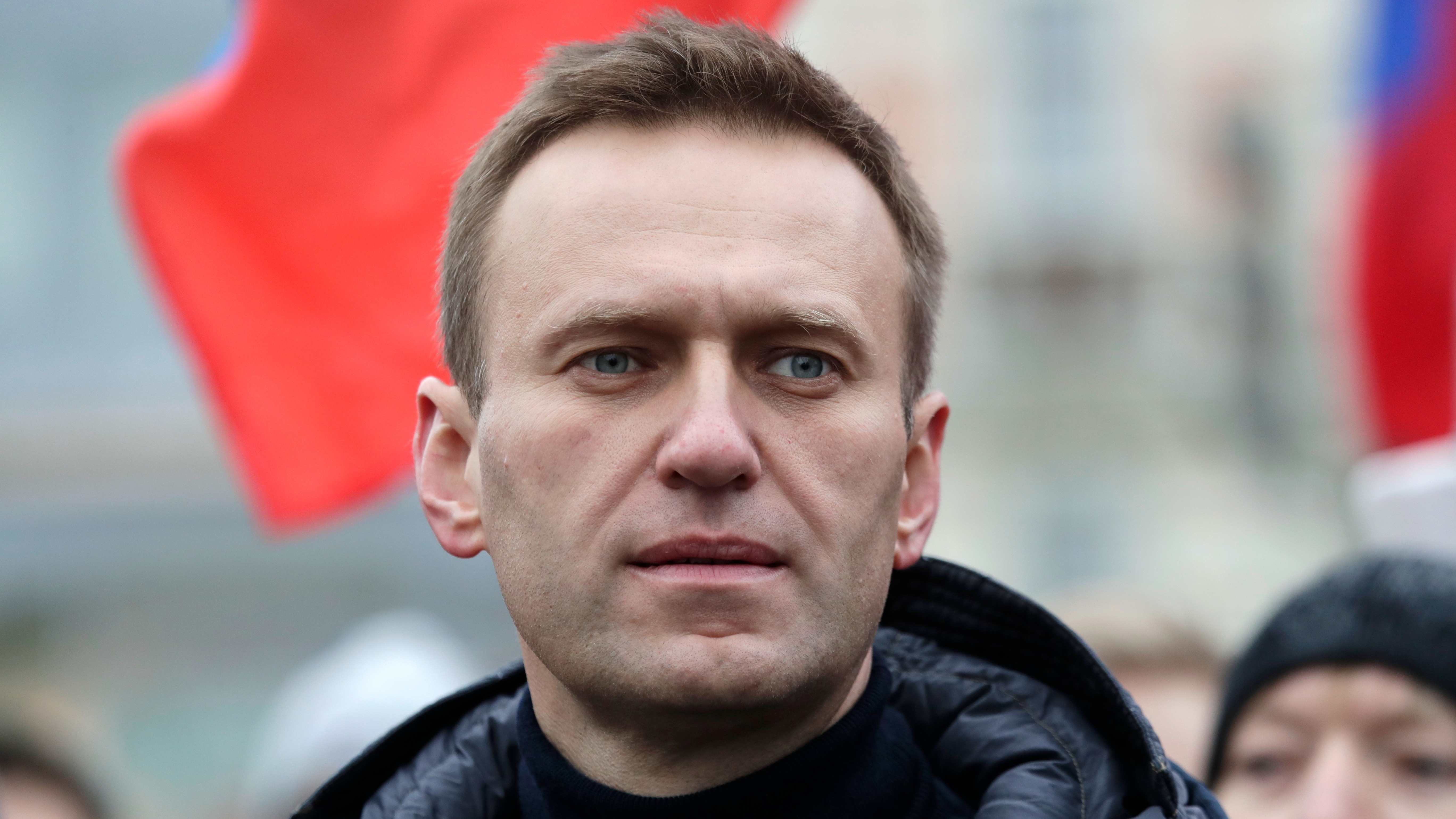Ukraine War Escalates: Crimea Oil Refinery Ablaze, Russia's Fuel Supply Under Threat

The conflict between Russia and Ukraine escalated on multiple fronts, encompassing direct military engagements, strategic infrastructure attacks, and significant diplomatic and geopolitical warnings. A major incident unfolded in the Russian-occupied Crimean peninsula, where an oil terminal at Feodosia was set ablaze following a Ukrainian drone attack on Monday. An anonymous Ukrainian security official confirmed that drones, launched by Ukraine’s SBU intelligence service and military special forces, successfully struck at least five oil reservoirs. Additionally, these drones reportedly targeted two Russian electrical substations within the peninsula, which Russia annexed from Ukraine in 2014. Satellite imagery from Nasa’s Firms service showed large heat signatures around the Feodosia terminal, a site that had also been attacked the previous week. These assaults align with Ukraine's broader strategy, having launched over 30 strikes on Russian energy sites since August, aiming to impede the Kremlin’s war funding and contributing to a noticeable spike in petrol prices across Russia. Consequently, areas like Crimea have experienced fuel shortages and rationing due to Russia's diminished refining capacity.
Simultaneously, Russian forces carried out an attack on Kharkiv, Ukraine’s second-largest city, using guided bombs. This assault resulted in a power outage for 30,000 customers, damaged a hospital, and hit critical power transmission lines. Four individuals sustained injuries, primarily from flying glass, as reported by local officials and Mayor Ihor Terekhov.
On the diplomatic front, Ukrainian President Volodymyr Zelenskyy announced an upcoming trip to the United States. His agenda includes crucial talks concerning the potential provision of long-range weapons, with a focus on discussions around Tomahawk missiles, especially after remarks by Donald Trump. Zelenskyy indicated a possible meeting with Trump on Friday and is also scheduled to engage with defense and energy companies, as well as members of Congress. Speaking at a meeting with EU Foreign Minister Kaja Kallas, Zelenskyy emphasized his intention to seek further US assistance to safeguard Ukraine’s electricity and gas networks against ongoing Russian bombardment. He will join a Ukrainian delegation already in the US, led by Prime Minister Yulia Svyrydenko.
In a move towards accountability, Kaja Kallas confirmed on Monday that the European Union has commenced funding a special tribunal. This tribunal aims to prosecute Russian President Vladimir Putin and other senior Russian officials for the crime of aggression against Ukraine. Kallas called upon other member states and participating countries to contribute financially, stressing that “without accountability there is no just and lasting peace.”
Battlefield reports presented conflicting accounts, with Russia’s defense ministry claiming the capture of two villages in eastern Ukraine – one in the Donetsk region and another near Kupiansk. Conversely, Ukraine’s national guard’s first corps stated it had successfully repelled a new attempt by Russian forces to advance near Dobropillia in the Donetsk region. These battlefield claims could not be independently verified.
Adding to the tense geopolitical atmosphere, Germany’s foreign intelligence chief, Martin Jaeger, head of the BND spy service, issued a stark warning to lawmakers. He cautioned that the current “icy peace” with the EU could rapidly escalate into “direct military confrontation” as Russia is determined to expand its “sphere of influence further westward into Europe.” Jaeger identified Germany as Russia’s “number one target in Europe” due to its leading economic role within the EU and its substantial support for Ukraine. He underscored that the threat is immediate, stating, “We must not sit back and assume that a possible Russian attack would come in 2029 at the earliest. We are already under fire today.” Jaeger elaborated on Moscow’s known tactics, which include attempted manipulation of elections and public opinion, propaganda, provocations, disinformation, espionage, sabotage, airspace violations by drones and fighter jets, contract killings, and the persecution of opposition figures residing abroad, referencing past incidents across the EU such as drone incursions in Poland and violations of Estonian airspace.
Recommended Articles
Global Conflict Escalates: Russia Unleashes Brutal Strikes as Fragile Peace Talks Collapse

Ukraine condemns a fresh wave of Russian strikes that killed one person and injured dozens, coinciding with the first tr...
Ghana-Russia Diplomatic Storm: Envoy Summoned Over 'Atrocious Conduct' Allegations!

Ghana has summoned the Russian Ambassador over allegations that a Russian national sexually exploited women and circulat...
Rubio Advocates Closer US-Europe Relations, Analysts Say Europe Stays Cautious

US Secretary of State Marco Rubio's Munich Security Conference address sparked mixed European reactions, highlighting on...
Shocking Navalny Toxin Allegations Lead to UK Sanctions Push Against Russia

The UK and its European allies have formally accused Russia of poisoning opposition leader Alexei Navalny with a rare da...
Russia Accused: Navalny Killed by 'Frog Toxin,' UK and Allies Confirm

Two years after his death, Russian opposition leader Alexei Navalny was confirmed to have been killed by a dart frog tox...
Epstein Files Explode: Royals, Billionaires, and Politicians Caught in Paedophile's Web

Newly released Jeffrey Epstein files expose disturbing connections involving high-profile figures. Prince Andrew faces r...
You may also like...
When Sacred Calendars Align: What a Rare Religious Overlap Can Teach Us

As Lent, Ramadan, and the Lunar calendar converge in February 2026, this short piece explores religious tolerance, commu...
Arsenal Under Fire: Arteta Defiantly Rejects 'Bottlers' Label Amid Title Race Nerves!

Mikel Arteta vehemently denies accusations of Arsenal being "bottlers" following a stumble against Wolves, which handed ...
Sensational Transfer Buzz: Casemiro Linked with Messi or Ronaldo Reunion Post-Man Utd Exit!

The latest transfer window sees major shifts as Manchester United's Casemiro draws interest from Inter Miami and Al Nass...
WBD Deal Heats Up: Netflix Co-CEO Fights for Takeover Amid DOJ Approval Claims!

Netflix co-CEO Ted Sarandos is vigorously advocating for the company's $83 billion acquisition of Warner Bros. Discovery...
KPop Demon Hunters' Stars and Songwriters Celebrate Lunar New Year Success!

Brooks Brothers and Gold House celebrated Lunar New Year with a celebrity-filled dinner in Beverly Hills, featuring rema...
Life-Saving Breakthrough: New US-Backed HIV Injection to Reach Thousands in Zimbabwe

The United States is backing a new twice-yearly HIV prevention injection, lenacapavir (LEN), for 271,000 people in Zimba...
OpenAI's Moral Crossroads: Nearly Tipped Off Police About School Shooter Threat Months Ago
ChatGPT-maker OpenAI disclosed it had identified Jesse Van Rootselaar's account for violent activities last year, prior ...
MTN Nigeria's Market Soars: Stock Hits Record High Post $6.2B Deal

MTN Nigeria's shares surged to a record high following MTN Group's $6.2 billion acquisition of IHS Towers. This strategi...